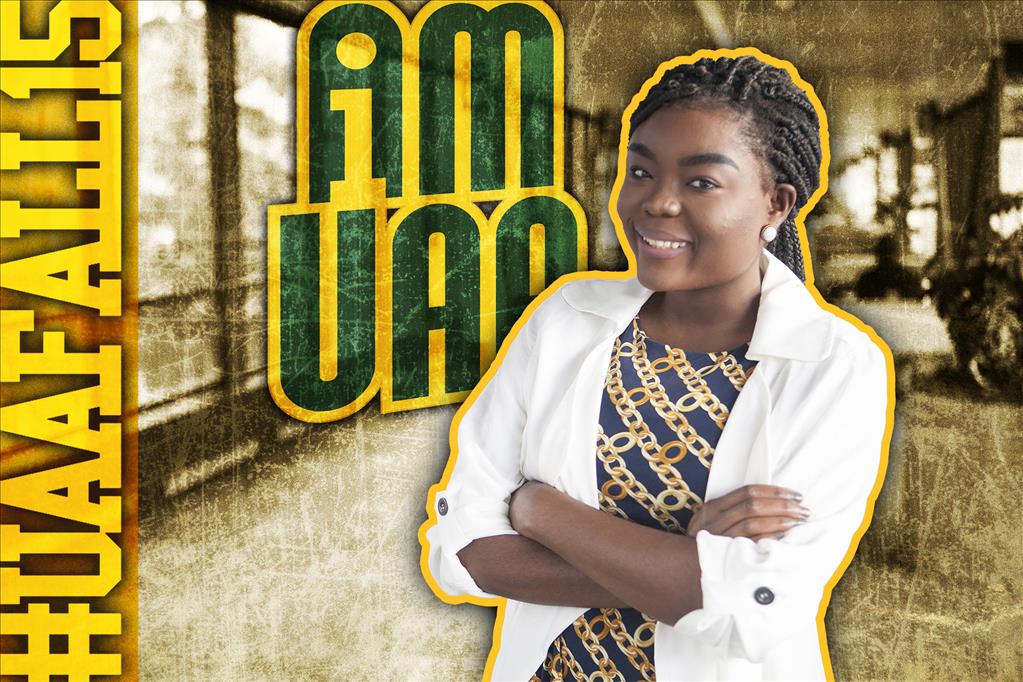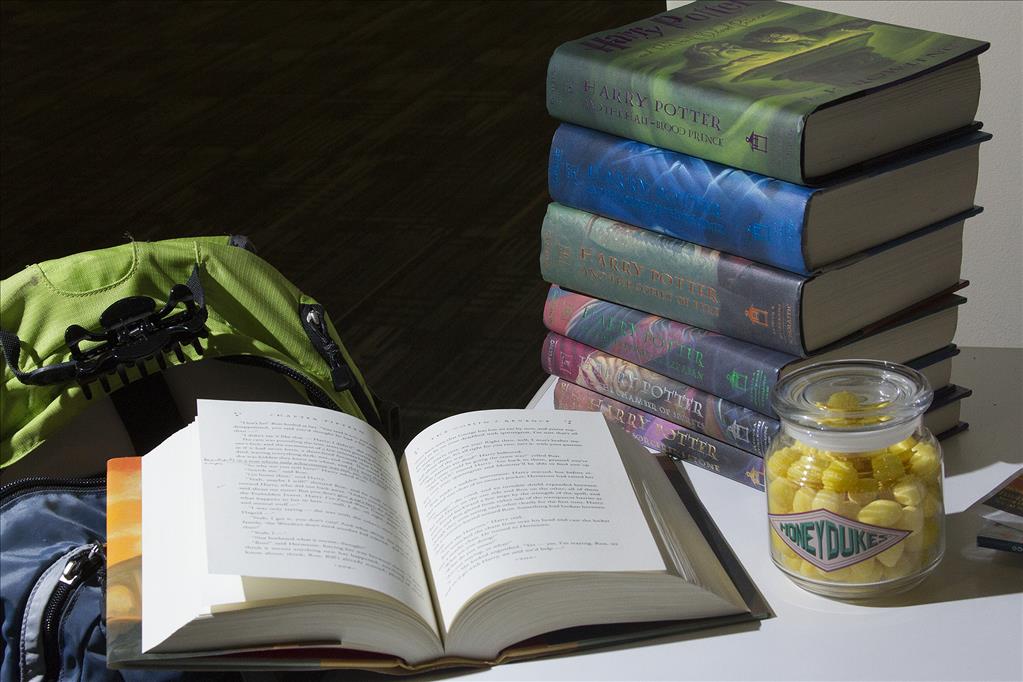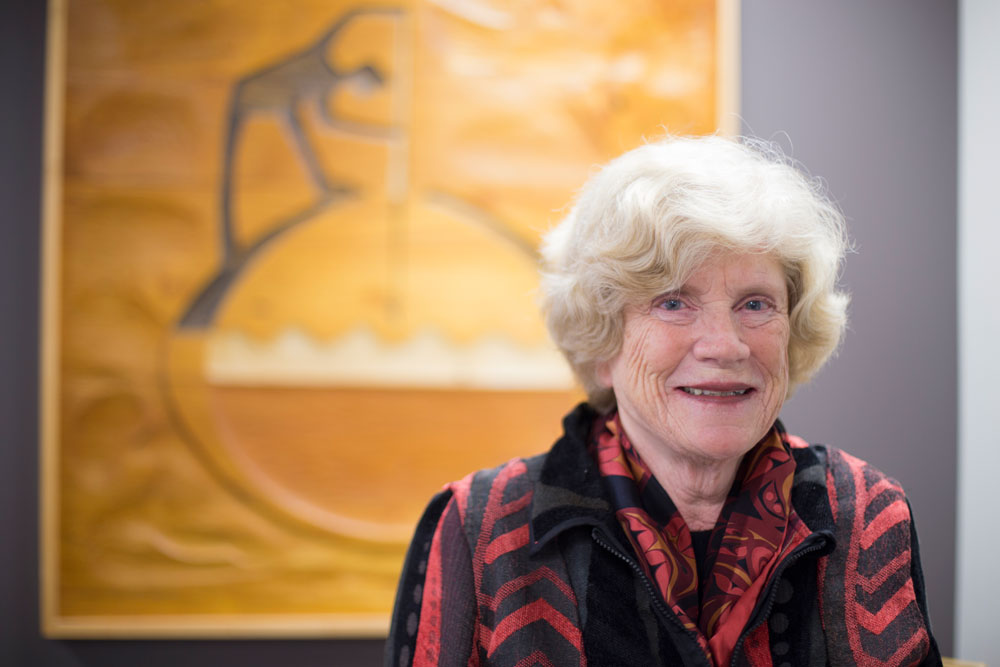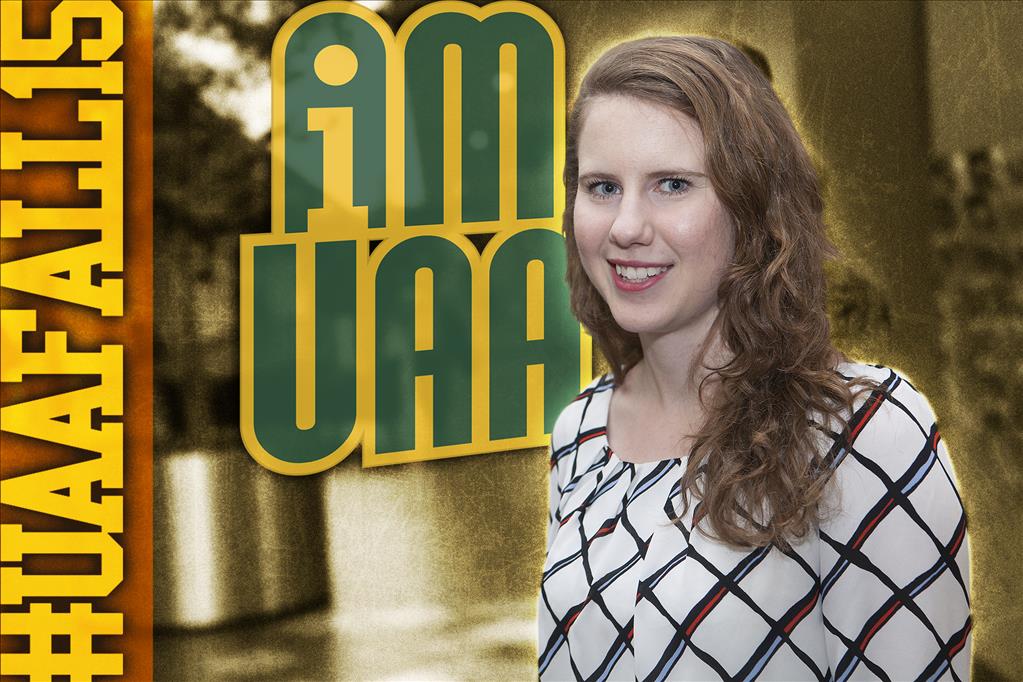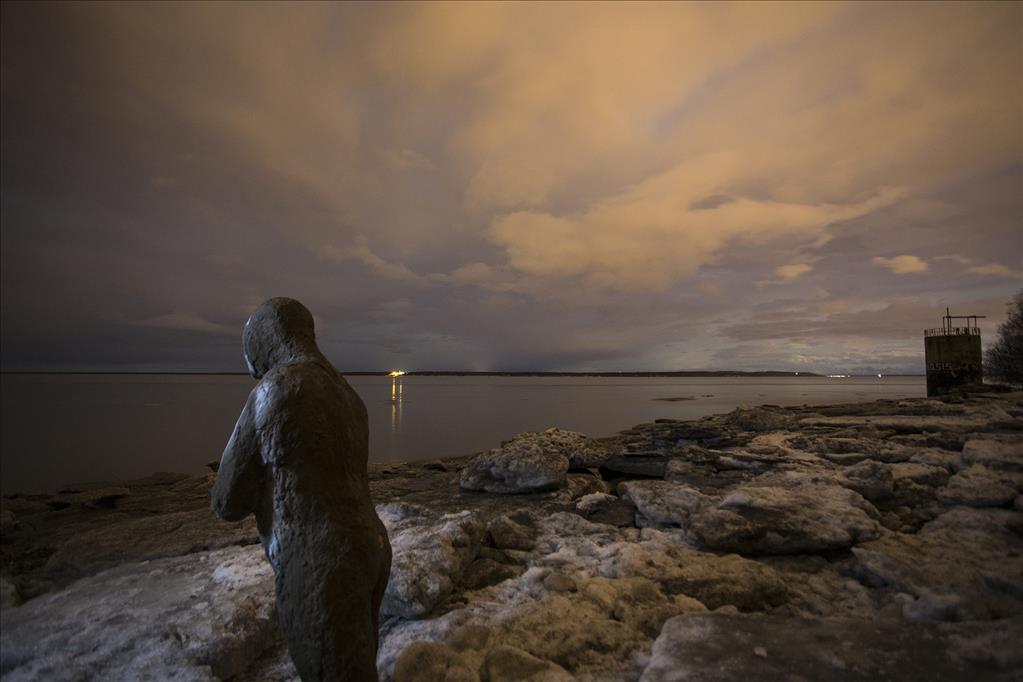Elizabeth Williams of Active Minds: 'Be your own hero' and take good care of your mental health
by Kathleen McCoy |

Elizabeth Williams in headed to Washington D.C. for leadership training with the national board of Active Minds. UAA's chapter helps promote conversations about mental health without stigma. Williams is a sophomore majoring in social work. (Philip Hall/University of Alaska Anchorage)
Elizabeth Williams' quick smile and easy laugh make an interview fly by, but it only takes a few sentences to hear deep commitment in her voice.
This sophomore majoring in social work volunteers and works in situations where she can practice what she believes: Mental health is important for everyone, and dealing with mental health issues should not carry a stigma.
First off, she's involved with Active Minds, a UAA chapter of a 400-chapter national organization working on college campuses to create positive attitudes toward mental health. UAA's group just organized a "Stress-Less" week as students headed into the midterm crunch.

Logo for Healthy Minds, a UAA chapter of a national organiation that fosters conversation about mental health.
Williams joined the group as a freshman because she finds the work meaningful. This week she'll take a special training on leadership and fundraising with Active Minds in Washington D.C., prompted to apply for the competitive slot by a supervisor at her job. That would be the 20 hours a week she spends assisting and entering data at the Center for Behavioral Health. That center receives state contracts to evaluate mental health programs around Alaska.
That center also launched ongoing Gatekeeper training for students, staff or faculty on how to speak directly and effectively about suicide. Active Minds and the Student Health and Counseling Center now support the Gatekeeper initiative, and Williams teaches the two-hour training the second Friday of every month.
But that's not all. She volunteers one day a week answering the crisis line for STAR (Standing Together Against Rape), and she also volunteers at a camp for children in foster care.
"Volunteering is my passion," she says. "If I could be a professional volunteer, that's what I'd do."
College not a given
Williams values her college opportunities. Higher education wasn't in the cards for the 12 kids in her family. Her adventurous parents were high school sweethearts who married right after graduation and headed straight to Alaska.
The young couple landed in scenic Gustavus, the gateway to Glacier Bay National Park in southeast Alaska and began working in tourism. Eventually their growing family all managed jobs in tourism. In winter, her father took another tourism job in Central California so his children could attend a Christian high school in that area.
The family's religious upbringing meant that Williams' natural destiny was marriage and family; no education and no career. She was ambitious for more. Her ticket to higher education only happened through the Seawolf Opportunity Scholarship (SOS) created at UAA about five years ago after an anonymous donor gave the school $7 million for first-generation college scholars. Williams fit the bill to a T.
"The ability to go to college is a huge privilege," Williams, 21, says. Now she and her younger brother are both studying at UAA and living in the dorms, where Williams also works in Templewood as a resident adviser. Last year the duo teamed up for Cabin Fever Debates, taking second place overall. "My brother is an excellent public speaker," she says, laughing. "I am sure that's why we won. Debate is completely out of my comfort zone."
But getting out of your comfort zone is a good thing, Williams acknowledges. College is the right place to try out new things, whether you're good at them or not. In fact, if this thoughtful young woman could share some advice with her fellow students, she's got some key points.
Sharing hard-earned wisdom
First, she says, college students should remember to relax. Go ahead and make a few mistakes, she advises; you'll survive and learn a few lessons along the way.
College is also a time to be mindful of your mental health. "You should realize that a lot of mental health issues surface right around this age, in your early 20s," Williams said. Examples she cites include everything from mental health disorders to childhood trauma finally surfacing. "There are a lot of resources for students here at UAA," she said.
Williams isn't shy about talking about her own mental health challenges. As a freshman, she experienced a deep bout of loneliness, one of the reasons she reached out for student clubs and selected Active Minds. She knows now that actively managing stress, nurturing an active social life and getting regular exercise are an important part of staying balanced.
"It's OK not to be happy all the time. I know what it's like to feel hopeless. I went through some very dark times when I started college. Loneliness was a big deal for me. College can be hard. There are so many people around, but you can feel so lost and alone."
Williams encourages new college students to try and avoid idealizing the whole college experiences-whether you expect to have a ton of friends or maybe perform brilliantly in all your classes. Take it as it comes.
Her best advice is to accept your feelings, whatever they are. "Be OK with pain. You can say to yourself, 'Right now, at this moment, I don't feel happy. That OK because I know someday I will.' Sit with it. Don't deny it."
Get help when you need it
She also encourages new college students to choose dorm life for their first two years, because it throws you into the thick of college life and exposes you to the vast resources at the university, all there for you to tap. Often young people are still learning just how resilient they can be.
"Be your own hero," she says. "Ask for help. That's being a hero, and one of the greatest things you can do for yourself."
Williams will finish up at UAA in spring of 2017. She sees more education ahead to better prepare her for her great ambition: To turn around at least one of Alaska's grimmer statistics, whether that is suicide, domestic violence or child abuse.
"I love Alaska and I want to work here," she says.
Written by Kathleen McCoy, UAA Office of University Advancement
 "Elizabeth Williams of Active Minds: 'Be your own hero' and take good care of your
mental health" is licensed under a Creative Commons Attribution-NonCommercial 4.0 International License.
"Elizabeth Williams of Active Minds: 'Be your own hero' and take good care of your
mental health" is licensed under a Creative Commons Attribution-NonCommercial 4.0 International License.










